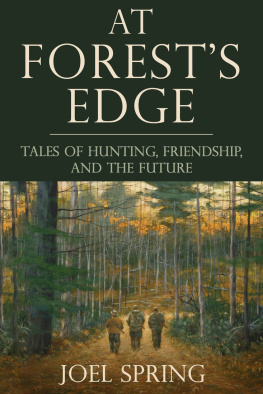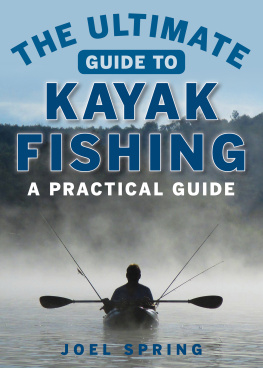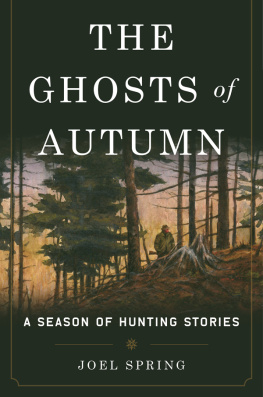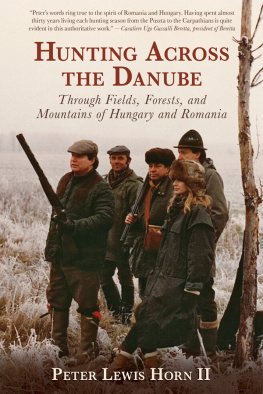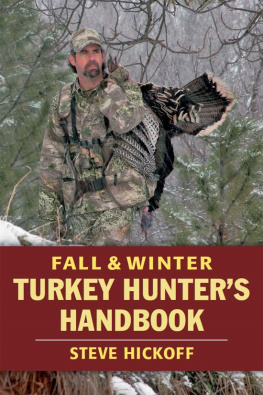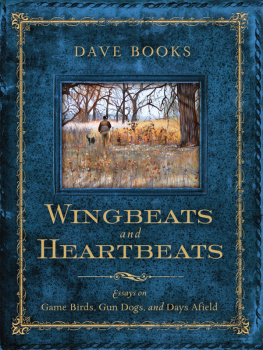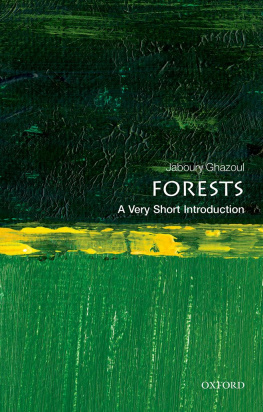


Copyright 2021 by Joel Spring
All rights reserved. No part of this book may be reproduced in any manner without the express written consent of the publisher, except in the case of brief excerpts in critical reviews or articles. All inquiries should be addressed to Skyhorse Publishing, 307 West 36th Street, 11th Floor, New York, NY 10018.
Skyhorse Publishing books may be purchased in bulk at special discounts for sales promotion, corporate gifts, fund-raising, or educational purposes. Special editions can also be created to specifications. For details, contact the Special Sales Department, Skyhorse Publishing, 307 West 36th Street, 11th Floor, New York, NY 10018 or .
Skyhorse and Skyhorse Publishing are registered trademarks of Skyhorse Publishing, Inc., a Delaware corporation.
Visit our website at www.skyhorsepublishing.com.
10 9 8 7 6 5 4 3 2 1
Library of Congress Cataloging-in-Publication Data is available on file.
Cover design by Kai Texel
Cover credit: Michael Ringer
Print ISBN: 978-1-5107-6082-0
Ebook ISBN: 978-1-5107-6749-2
Printed in the United States of America
This book is for my nephew, hunting partner, and friend, Porter Hunt.
Keep doing what youre doing. The future is bright.
TABLE OF CONTENTS
PIER PRESSURE
Old age is like everything else. To make a success of it, youve got to start young.
Theodore Roosevelt
IM GETTING too old for this.
Ahead of me, my younger hunting partners hopped and stepped deftly between ice-covered boulders at the base of the gigantic pier. Of those boulders, there wasnt a single one with a level surface on which to climb. Had it been a dry, warm day, navigating these enormous chunks of rock would have been a challenge. In retrospect, practicing on a warm, dry day would have been a smart move. In reality, the wet, icy boulders were the obstacle course from hell. In between each boulder, the increasingly angry lake sent geysers of icy water up, making the course more interesting. I think the boys found that to be an integral part of the challenge. Id long ago given up the idea that a face full of icy wateror even falling to my death into that frigid waterwas a challenge worth accepting. Since Id apparently joined a team of duck hunting mountain goats, I had no choice but to plod on. While the boys jumped and laughed, I carefully pulled my ammo box along behind before gingerly placing my old 12-gauge duck gun on the next boulder. Forcing myself slowly forward across the treacherous rock, often on hands and knees, I was soon outdistanced by my hunting partners, who settled into their positions before I was even halfway there. Being the elder statesman in the group, I figured it would probably be unseemly to just sit down and cry, so on I crawled. Water lapped up between the boulders with increasing fury now, so I timed my progress to remain as dry as possible.
At one point a distant voice said, Come on, you can do it!
Had I been able to identify that voicewhich I couldnt because my partners were too far away nowI probably would have responded with a less than statesmanlike reply. Kids. Finally reaching the adventurous band of three young duck hunters, I pulled up my gun, trying to compose myself while at the same time attempting to hide my breathlessness. Settling into a most uncomfortable crag between two boulders, I loaded my shotgun and tried to think happy duck hunting thoughts.
Ive been a duck hunter for a very long time. Truth be told, though, I hadnt duck hunted the late season in a very long time. The Niagara River and Lake Ontario offer some of the best inland diver-duck hunting in the entire world. Bluebills, canvasbacks, scoter, goldeneyes, and old squaw (now referred to by some as the long-tailed duck), as well as several less common species, all visit the area during the late duck season. Mostly fishing and foraging birds, the divers rely upon the only open water in the Northeast to provide hunting grounds when their home areas far to the north are iced over and inaccessible. The area is a major attraction to birds, bird hunters, and birders alike, and I never tire of the endless parade of species visiting our area in the winter. From snowy owls, to harrier hawks, to the extraordinary array of waterfowl, the area just south of Lake Ontario provides a resting spot for many species after a long flight across the big lake. Much less transitory, myself, Ive been lucky enough to call the area home for almost my entire life.
Duck hunting in my younger days mostly took place on the shores of Lake Ontario and the banks of the Upper Niagara River. The diversity of ducks on the Niagara during the late-season hunt was incredible. In addition to the plentiful diver ducks and mergansers, mallards often winter over there, providing late-season greenhead shooting that not many northern hunters can enjoy in December and January. Some of my most memorable days were hunting with a group of friends, watching the dogs work the fast, frigid currents, retrieving duck after duck. In retrospect, hunting along the shelf ice was probably as treacherous as todays hunt, especially when someones dog needed a hoist up and out of the deep, fast-moving water. Even with chest waders, the river often won, spilling over the top of the waders and rendering their insulative factors moot. Slipping off the shelf ice, or tripping when retrieving the decoys at the end of the day, was always challenging with frozen hands. Falling in and taking a cold bath wasnt just a possibility, but a likelihood. I was younger then and, possibly, a lot less smart. But, much like my young hunting partners today, I didnt think much about it. I didnt stop to consider the danger or the consequences. As a result, they were some of the best hunting days of my entire life.
I think thats how its supposed to work.
With the pre-dawn light growing in the distance, I tried to focus on the surroundings. I forced myself to try not to think about how the hell I was going to get back out of here. When you get older, things like that tend to cross your mind more often, Ive found. The great gray pier stretched out from the bay into the big lake. Two- and three-foot waves increased in intensity, lapping against the pier and the boulders, often soaking us in the process. Not good conditions for birding, for certain, this is the kind of day that was made for duck hunting. The heavy wind would keep the birds moving in the surf and, if it got any more intense, some of the birds would divert around the end of the pier and right past our hideout. Ten minutes after shooting light, a small flock of old squaw passed our decoy spread. All four guns came up. The guns went down just as quickly as they banked away. As the speedy diver ducks once again flickered back in our direction, the guns came up again. I heard a safety click off.
My nephew Porter, who had organized this trip, was just to my right. As the click sounded above the crash of the waves, Porter and I both hissed at the same time, Wait! When the ducks cleared half of that distance, we again spoke simultaneously, Now! The flock banked left and the guns roared. Two drake old squaw fell just outside of the decoys. Another single bird banked right and I pulled the trigger. It was the first old squaw I had shot in many years. Three white bellies bobbed in the surf around the decoys.
Next page
